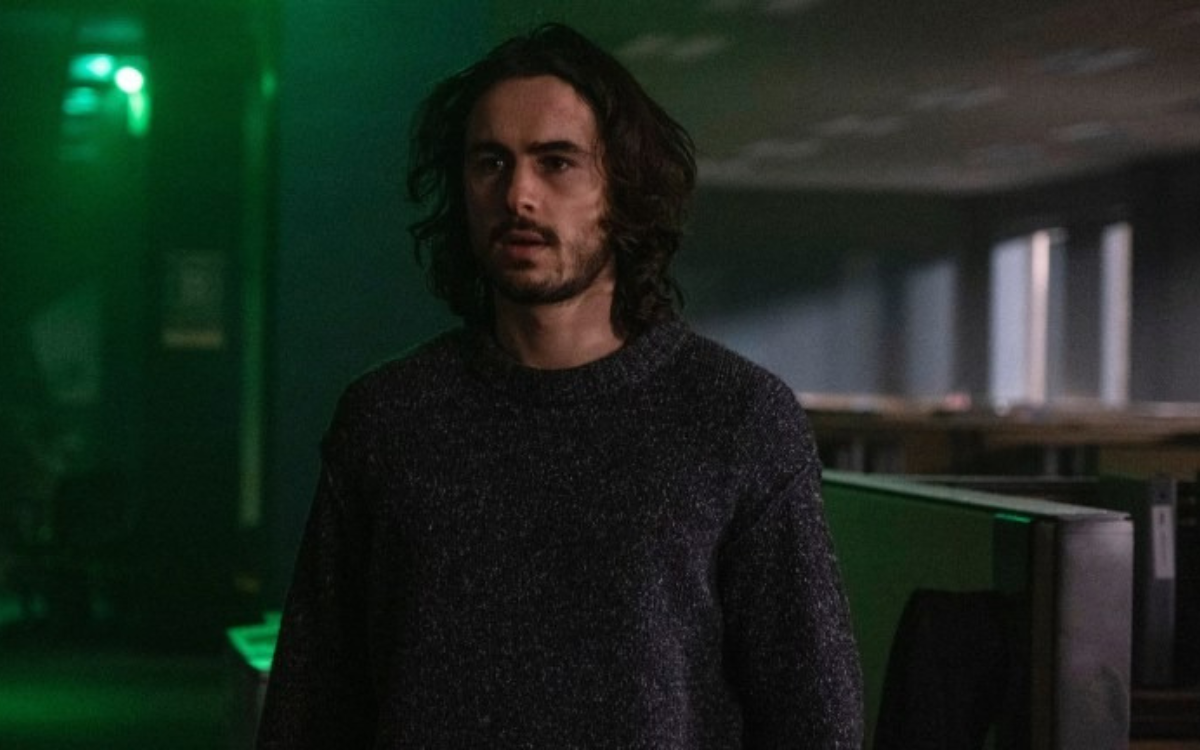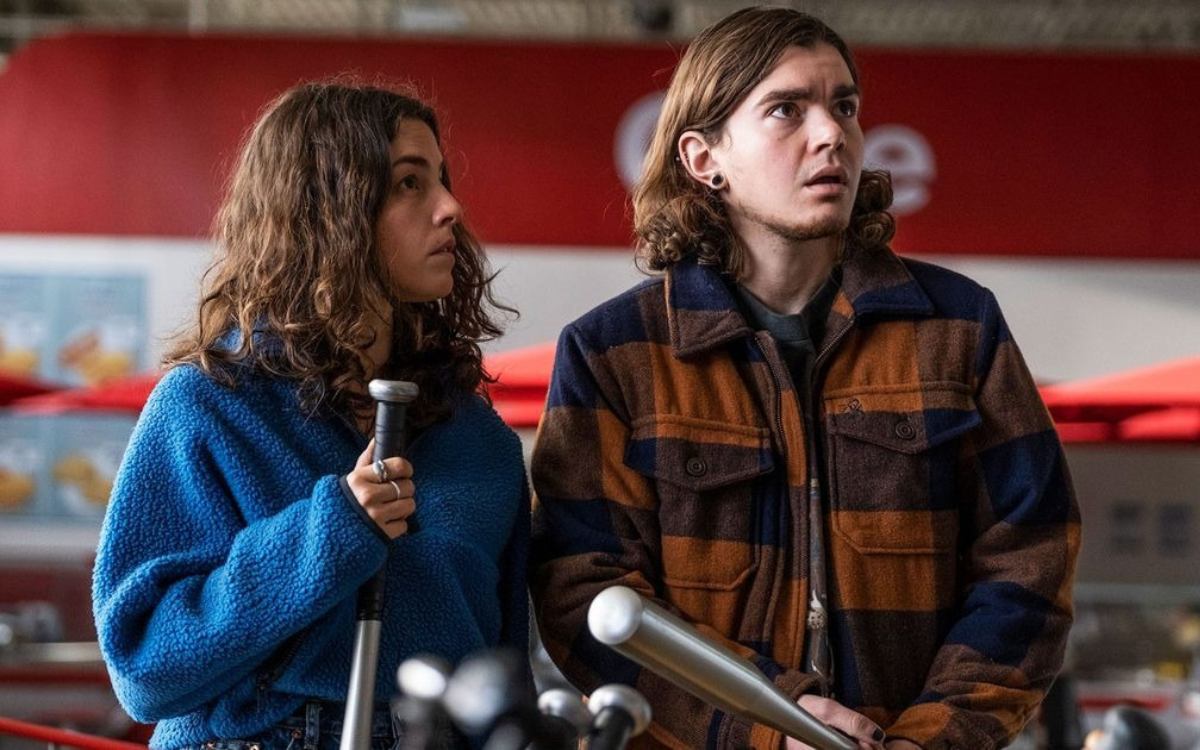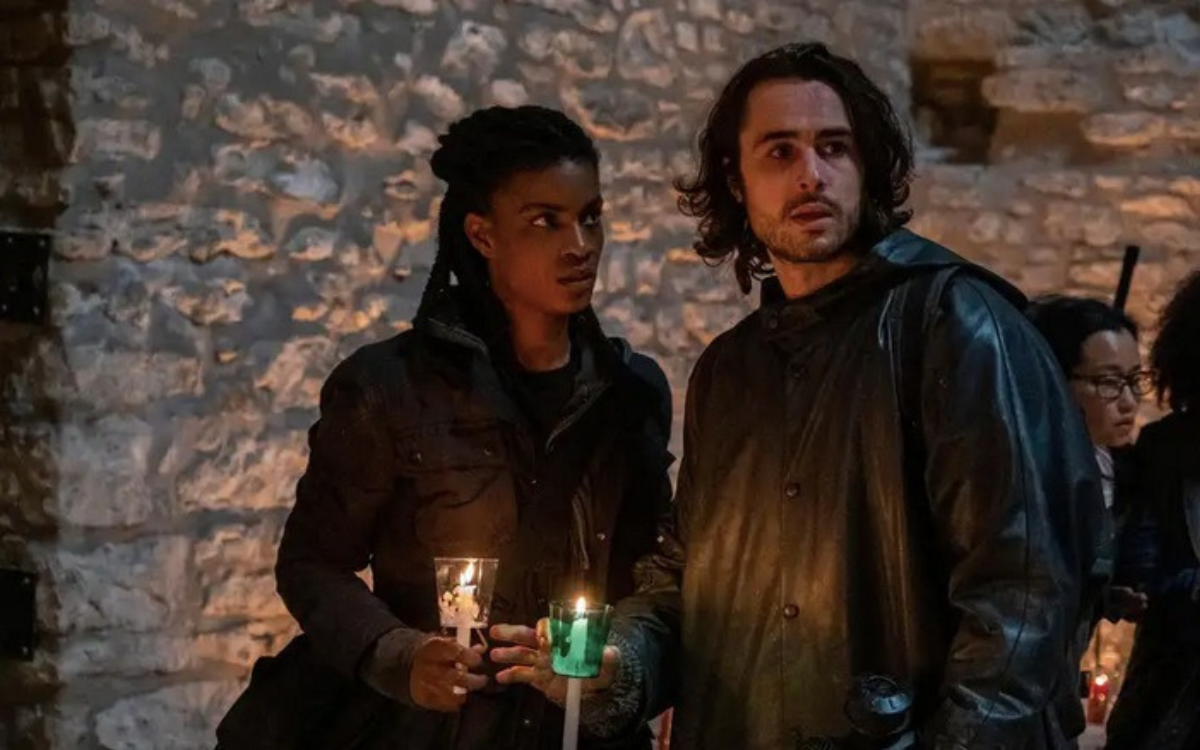In 2021, fans of Brian K. Vaughn’s highly acclaimed comic series Y: The Last Man finally saw an adaptation make its way to our screens. It had been a long and tumultuous journey, with the project first entering development back in 2007 and encountering numerous setbacks along the way. However, despite the challenges, the series finally arrived and garnered relatively positive reviews and decent buzz. It seemed like Y: The Last Man had broken free from its adaptation curse and was ready to captivate a new audience.
- ‘Pretty Little Liars’ Alternate Ending Would’ve Left This Character’s Fate up in the Air
- ‘Ahsoka’ Episode 4 Easter Eggs
- These ‘Buffy the Vampire Slayer’ Episodes Were Pulled From Broadcast
- ‘Ted Lasso’ Season 3: This Is the Most Important Reconciliation No One Was Expecting
- ‘Ahsoka’ Episode 4 Recap: Jedi Fall Quite Literally This Week
But then, after just four episodes of the first season aired, disappointment struck. The show was not renewed for a second season and was ultimately canceled. With no other networks stepping in to rescue it, Y: The Last Man suffered a fate similar to the cis-gendered men in its source material – left behind and seemingly forgotten. So, what went wrong? Why did an adaptation of such a highly acclaimed comic series face such a tragic fate? Why did FX, the network behind the show, decide not to continue the series? While we may never have all the answers to these mysteries, we can at least explore what led to this unfortunate outcome.
you are watching: The Troubled Birth and Lonely Death of ‘Y: The Last Man’
‘Y: The Last Man’ Had A Cursed Development
Y: The Last Man made its debut in September 2002, marking its entry into the world of comics under the distinguished DC Comics imprint, Vertigo. Vertigo was renowned for its mature and non-superhero-focused comic titles, including the iconic Sandman series by Neil Gaiman. Y: The Last Man quickly established itself as a standout, earning praise for its sophisticated exploration of gender dynamics within its post-apocalyptic narrative. The comic’s success even led to plans for a film adaptation in 2007, with director David J. Caruso initially on board. However, what followed was a journey through the depths of development hell that would span several years.
After the first script fell by the wayside, the comic’s creator, Brian K. Vaughn, took the reins and penned his own treatment, only to face the same fate. This set the tone for the project, as multiple scripts were drafted over the years, only to be rejected before substantial progress could be made. Eventually, Caruso parted ways due to ‘creative differences’ (a phrase that would become all too familiar in this story), and in 2013, director Dan Trachtenberg, known for works like 10 Cloverfield Lane and Prey, stepped in. Production was slated to commence in 2014, but despite high hopes, the film was ultimately scrapped, and the rights reverted to the original creators, leaving them with seven years of development and nothing to show for it.
see more : ‘Ahsoka’ Episode 5 Recap: Chasing the Ghosts of Better Stories
In 2015, the narrative of the show began to take shape as FX assumed control of its development. By 2016, the project seemed to be on solid ground, with the talented writer of Blade Runner 2049 and future American Gods showrunner, Michael Green, set to be the showrunner, joined later by Aïda Mashaka Croal as co-showrunner. Things were looking up, but, as was the case with previous adaptation attempts, that’s when the troubles kicked in. As the production gears started turning, the show hit significant roadblocks. Barry Keoghan was cast as Yorick, and Lyshanna Lynch joined as Agent 355 after her initial appearance in the pilot. The ensemble was coming together, two capable showrunners were at the helm, but then came the grinding halt. Green and Croal exited the project due to (you guessed it) ‘creative differences,’ and Eliza Clark took their place. More delays ensued, leading to Keoghan’s departure and Lynch’s exit with him. Recasting and further delays followed, culminating in the grandest delay of all: the arrival of COVID-19. Like countless other productions, the entire project had to adapt to the unprecedented pandemic, and when production eventually began, it was merely a shadow of its former self, a dream that had already faded.
What Killed ‘Y: The Last Man’?
Many might initially assume that the demise of Y: The Last Man was purely due to its quality, that the show simply didn’t meet critical standards and the network decided to pull the plug—an unfortunate but not uncommon fate in the world of television. However, the show received favorable reviews, boasting a Rotten Tomatoes rating of around 70%—not exceptional, but certainly not dismal enough to warrant cancellation. Another hypothesis could be viewership issues. When news broke that the series had been canceled, it was experiencing a decline in viewership. Yet, this doesn’t provide the full picture either. Most series tend to experience a viewership dip around the midpoint of a season, especially in a post-streaming era where binge-watching is the norm. So if it wasn’t about quality or viewership, what was the real reason?
To grasp the true cause, one must first comprehend the concept of ‘optioning’ in filmmaking. In simple terms, ‘optioning’ refers to putting down money to secure the exclusive rights to publish and initiate production on a project. Studios often opt for books generating buzz but might delay production until they assemble the necessary components—like a screenwriter, producer, and director. This is precisely what transpired in 2007 when the idea of adapting Y: The Last Man into a movie first surfaced. The rights were optioned but remained in limbo until 2014, when they reverted to the original creators. In certain instances, studios and productions will ‘option’ actors and crew, essentially compensating them to stay attached to a project during its uncertain phases.
This is where Y: The Last Man encountered its primary hurdle: its protracted limbo period kept extending, and to sustain it, individuals involved still needed to be paid. This is likely why the original actors departed the project, as the studio was likely hesitant to keep covering the costs of their options. However, they encountered the same issue with the new cast once COVID-19 struck, leading to further delays in production. Maintaining an entire cast incurs significant expenses, even if the show remained within its budgetary confines (which, by the way, might appear steep but is within the range of other productions). It was the financial weight of these options that burdened FX. Ironically, for a show centered on a sudden, world-altering event, it was a similar kind of monumental shift that spelled its demise.
see more : ‘Succession’ Ending Explained: Who Wins in the Series Finale?
Yet, this still leaves the question: why did the show’s cancellation go by so quietly? Other canceled shows have prompted fervent fan backlash and petitions for revival. In stark contrast, when the cancellation order arrived for Y: The Last Man, it scarcely stirred a whisper. So, why did it generate so little buzz?
‘Y: The Last Man’s Biggest Problems Are Inherent To The Source Material
Y: The Last Man enjoyed remarkable success and critical acclaim upon its initial release. However, it’s crucial to recognize that the original comic was published back in 2002, and a lot has changed in discussions around gender and sex since then. Many narratives in the ‘gender apocalypse’ subgenre have drawn inspiration from it over the years, and storytelling formats have evolved significantly to keep pace with the times. Discussions surrounding transgender identity, in particular, have progressed since then, and the original comic mostly lacked these perspectives. The TV show made commendable efforts to address this concern, introducing a significant trans male character and acknowledging the loss of women when the Y chromosome disappeared. Nevertheless, the overarching issue proved to be too substantial to easily navigate.
While Y: The Last Man may be an older comic by today’s standards, that in itself shouldn’t pose an insurmountable problem. The Boys, for instance, underwent considerable updates during its adaptation, and most of these changes were embraced warmly by audiences. However, Y: The Last Man faces a unique challenge—it’s not just a matter of edgy humor or off-color commentary that can be tweaked. It’s inherent in the title itself. It’s called Y: The ‘Last Man,’ and for the narrative to function, there’s only one ‘man’ remaining, Yorick. The show could endeavor to explore trans identity as much as it liked, but it couldn’t escape the core concept of the story.
The show was always going to be marked by this hot-button issue, but another sword hung over it from the start: its length. Y: The Last Man is a substantial series, spanning six years and encompassing over 60 globetrotting issues. It’s a narrative that demands a broad scope, a fact that the original movie director recognized. David J. Caruso had hoped to expand the film into a trilogy to cover the entire story, but when that plan fell through, he departed from the project. This has been the recurring stumbling block that plagued the project—a lengthy series requiring a delicate touch and substantial funding to adapt without risking offense or failure. The intellectual property is too vast and too risky to effectively translate to the big screen, and its failure to find another network willing to take it on likely spells doom for its chances on the small screen as well.
Y: The Last Man has endured for over 20 years, not without its fair share of challenges. The movie project faltered because it struggled to condense the immense series onto the big screen, while the TV series faced setbacks due to an unprecedented pandemic and financial constraints. The term ‘curse’ is often thrown around in the realm of projects, but in this case, it feels exceptionally fitting. However, the challenges extend beyond external factors. There are inherent issues within the source material itself that likely hindered it from gaining the widespread attention it might have enjoyed had it debuted in a different era. The world has evolved significantly since the comic’s debut in 2002, and in many respects, the intellectual property may have aged too much to remain relevant today. The FX series perhaps represented its final opportunity, and despite commendable efforts to modernize it, it fell short of generating the buzz and recognition needed for a successful adaptation. While it will forever remain a critically acclaimed comic, like many other great comics, it may have to settle for just that.
Source: https://dominioncinemas.net
Category: TV FEATURES












